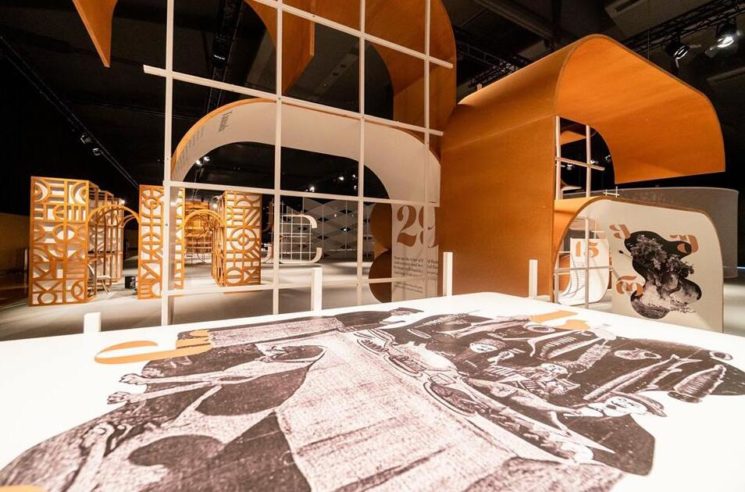The earliest known texts in Georgian origin from the first centuries after the introduction of Christianity in the first half of the 300s. They are mostly of a religious, Christian nature, but in later medieval literature we occasionally glimpse pre-literary oral traditions (folk poetry, epic). The earliest delivered text is the martyrdom of Saint Shushanik by Iakob Tsurtaveli (AD 400), which tells of the conflict between Christianity and Iranian Zarathustism, which in pre-Christian times held a strong position among the Georgian nobility.
From the Middle Ages we have a rich religious literature (Bible translations, saints, hymns and so on). Here can be mentioned Balahvariani (The saga of Balahvar and Iodasap), a hagiographical novel of Indian origin, which was also very popular in Europe in the Middle Ages. It is found in a Norse translation ( Barlaams and Jehoshaphat’s saga ). From the Middle Ages most of the large chronicle collection also comes from Kartli’s life. From the 10th century and the following centuries, there is a rich translation literature from Greek and Persian.
Georgia’s political heyday in the 12th and 13th centuries is the golden age of secular literature. To this period belongs the great epic The Man in the Tiger Skin of Sjota Rustaveli (Rusthaveli, Rusthveli), a contemporary of Queen Tamar (1184–1213). It is a poem about love and friendship, inspired by the contemporary New Platonic thinking, which is still enjoying great popularity in Georgia. The Mongol invasions in the 13th century led to a political and cultural decline. From the following period there are some Persian-inspired poems. At the end of the 1600s, Sulkhan Saba Orbeliani expressed his enlightenment ideas in the fables collection. The literary renaissance begins in the 18th century. Until the latter half of the 19th century, literature is mostly romantic, represented by the poets Aleksandre Chavchavadse, Nikolos Baratashvili and Vakhtang Orbeliani. The language is archaic and unpopular.
The great modern breakthrough happened with the three great poets Ilia Chavchavadse (1837-1907), landlord, journalist, radical politician and leader of the liberal opposition in the Russian Duma (now canonized by the Georgian Church), lyricist Akaki Tsereteli (1840-1915 ) and the East Georgian mountain tribes depict Aleksandre Kasbegi (1848–93). Lyricist Vasja Psjavela (1861-1915) has portrayed the life and mythological world of the mountain peoples in his hometown dialect. Prior to the revolution, French influence prevailed alongside the Russian.
In Soviet times, the Georgian literature gradually came to follow the same pattern of development as the Russian, characterized by socialist realism. In 1937, Georgian cultural life was severely affected by the political purge of Lavrentij Berija, and many authors were deported or killed. The novelists Mikheil Dzhavakhishvili (1880-1937), Konstantine Gamsakhurdia (1890-1975) and Demna Sjengelaia (1896-1980) and the lyricist Galaktion Tabidse (1881-1959) are among the most prominent representatives of Georgian literature in the interwar period. Among the post-war generation are the novelists Chabua Amiredsjibi, Otar Chiladse and Nodar Dumbadze and lyricist Ana Kalandadse.
